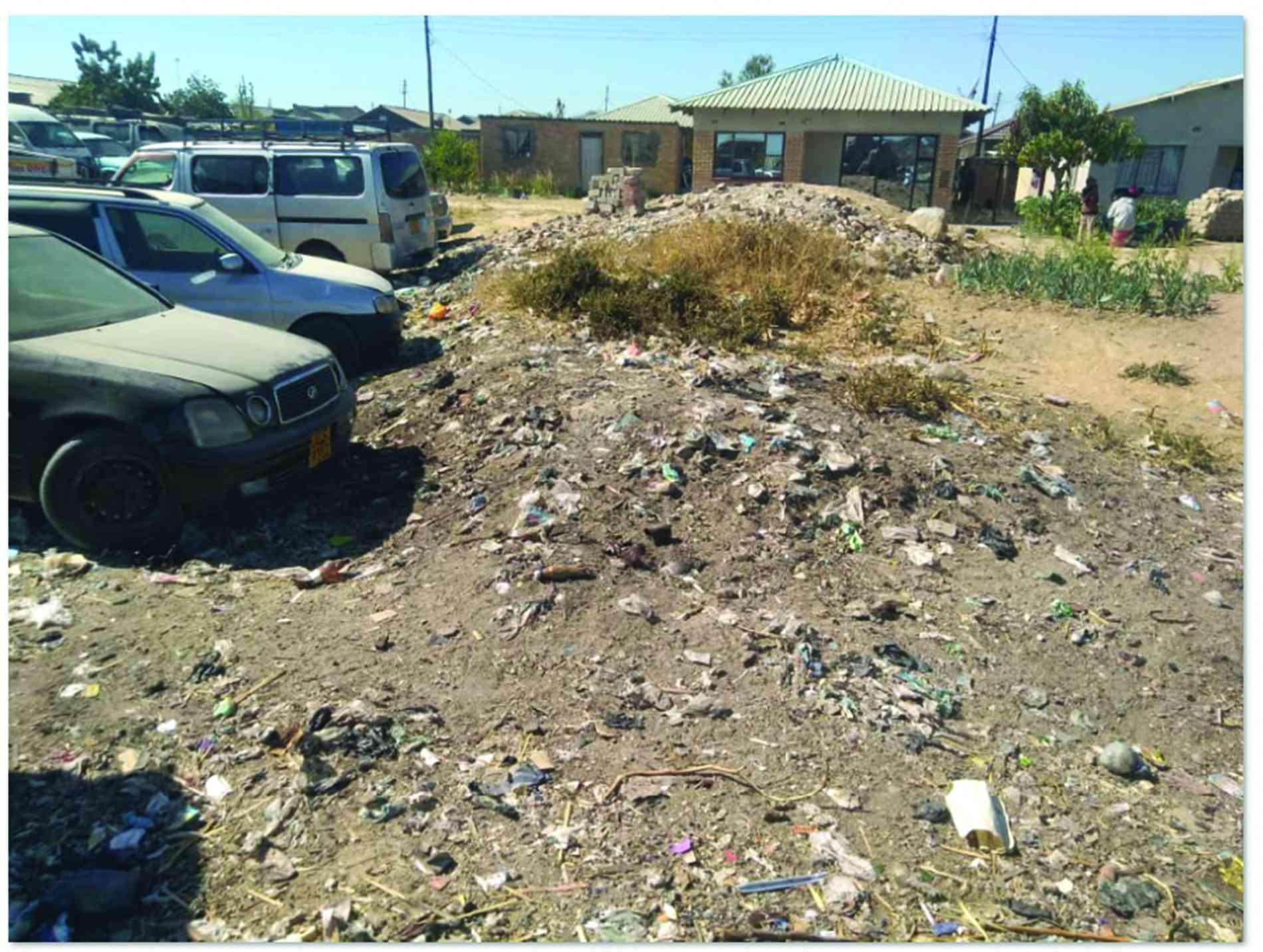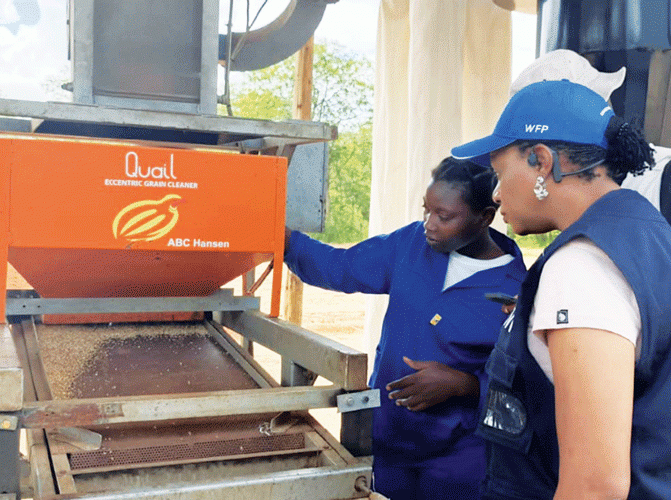
LOCATED in the northwestern side of the dormitory town of Chitungwiza, Manyame Park surburb is a thriving community hub that is now polluted everywhere.
As one navigates through the garbage, a strong stench hangs in the air.
For Samantha Manyika (29), life has become unbearable as residents in the area have resorted to dumping litter near the corner of her yard.
Flies hum around the illegal dumpsite, moving from one rotting foodstuff to another.
This has become a cause for concern for Manyika as she fears that the flies will trasmit diseases to her house.
She no longer opens the doors or windows that are located near the dumpsite.
“Uncollected waste has ruined our daily lives because we are inhaling polluted air. We are likely to be affected by diseases such as malaria and cholera. It’s only a matter of time before disaster strikes,” Manyika said.
For years, Zimbabwe has experienced multiple outbreaks of cholera, which have claimed thousands of lives.
- News in depth: ‘Cross-border raids’: Zimbabwean illegal miners wreak havoc in Botswana, SA
- News in depth: Mnangagwa’s push for $12 billion mining industry imperils communities
- News in depth: British investor digs in over Marange diamond concession saga
- News in depth: ‘Cross-border raids’: Zimbabwean illegal miners wreak havoc in Botswana, SA
Keep Reading
Chitungwiza has not been spared.
In January, the government launched operation Chenesa Harare in an effort to clean up dumpsites that are dotted across the city.
Timothy Takunda (25), a Manyame Park resident, fears for his health as a result of the uncollected garbage.
“I can’t express enough how frustrated I am with the uncollected waste that has taken over our streets,” Takunda said.
“Every day, we wake up to a sight that looks more like a dumping ground than a community. The litter piles up, and it’s an eyesore.
“It brings with it foul smells, pests and health risks. It’s disheartening to see our children playing near mounds of garbage, knowing that their health is at stake.”
He added: “We deserve better than this. It appears as if our concerns are falling on deaf ears, and it’s high time that the authorities take action to clean up our neighbourhoods. We need a solution, now.”
The cash-strapped Chitungwiza Municipality has over the years been struggling with service delivery issues.
The very system that has the mandate to serve and protect residents has become a source of frustration and hopelessness.
Centre for Natural Resource Governance director Farai Maguwu said the biggest problem that arises from uncollected litter and alternative dumpsites are health challenges.
“The problems are quite many, but chief among them are health issues, because you find that those dumpsites will end up attracting a lot of flies, and Zimbabweans are purely disposing of the pampers. They just dispose of in illegal dumping areas,” he said.
“What I know is that usually, it happens because the city council is not timeously collecting garbage, so people will find a place they will end up disposing of the garbage. So they use wheelbarrows to go and dump their garbage and usually do it at night.”
Added Maguwu: “We are about to enter the rainy season, so you see some of the garbage will be washed away into storm drains and will result in blockages.
“The rains will also wash away some of the garbage, which ends up littering the whole community.”
Trust Tadiwanashe Mapaya, a third-year student at the University of Zimbabwe studying Geomatics Engineering in Geoformatics, said local authorities should encourage residents to be responsible citizens.
“Littering destroys the aesthetic value of the land, creating an eyesore. Local authorities must encourage individuals to be responsible as the custodians of the area. This reduces the enjoyment of public spaces and undermines community pride and identity,” he said.
Zimbabwe Environmental Law Association programmes director Nyaradzo Mutonhori said the worst thing is that most of the uncollected litter is non-biodegradable, that is, it cannot be decomposed by bacteria or other living organisms. Generally, plastic waste makes up to approximately 18%, but it’s around 300 000 tonnes of plastic only that are produced, according to EMA [Environmental Management Authority], but we also import 394 million kg of plastic to Zimbabwe,” she said.
“When we look at plastics, it becomes a serious issue because plastic is non-biodegradable compared to, for instance, organic waste and some type of paper that are biodegradable that are then converted into manure and benefit the ecosystem.
“Plastic waste is really a serious public health and environmental concern and that is why the United Nations is working on an internationally legally binding instrument on plastic pollution.”
However, Chitungwiza Municipality spokesperson Tafadzwa Kachiko said the local authority was facing challenges in accessing some suburbs.
He added that Manyame Park has a section that is “unplanned” and characterised by a poor road network, making it inaccessible.
“We have a schedule of collecting waste in Manyame every Thursday. I’m not sure if that area (you are referring to) is accessible. We have a challenge that in some areas, we are not able to collect refuse because those areas might be inaccessible. (They are) unplanned settlements, (hence they) are disorganised. They are not easy to access,” Kachiko said.
“However, we have plans to procure tractors to ensure that we have access to the areas that are inaccessible, but we have a refuse collection schedule we observe. In every ward waste will be collected once per week. In the case of Manyame Park, they collect refuse on Thursdays.”
For Manyika, she prays that the local authority’s refuse truck will one day pass through and collect the heaps of litter near her yard.
For now, she has to live with this reality and only hope that her family is not affected by diarrhoeal diseases.
According to Dr Emily Greenfield in her article published this year titled Effects of Litter Pollution on Our Health, Environment, and Economy, she states that littering is a pervasive environmental crisis that not only mars the beauty of our streets, parks and beaches, but also poses grave threats to public health, ecosystems and local economies.
“Addressing this multifaceted challenge requires a concerted effort involving stricter regulations, community education and individual responsibility, underscoring the urgent need for collective action to safeguard our environment and future,” she wrote.










